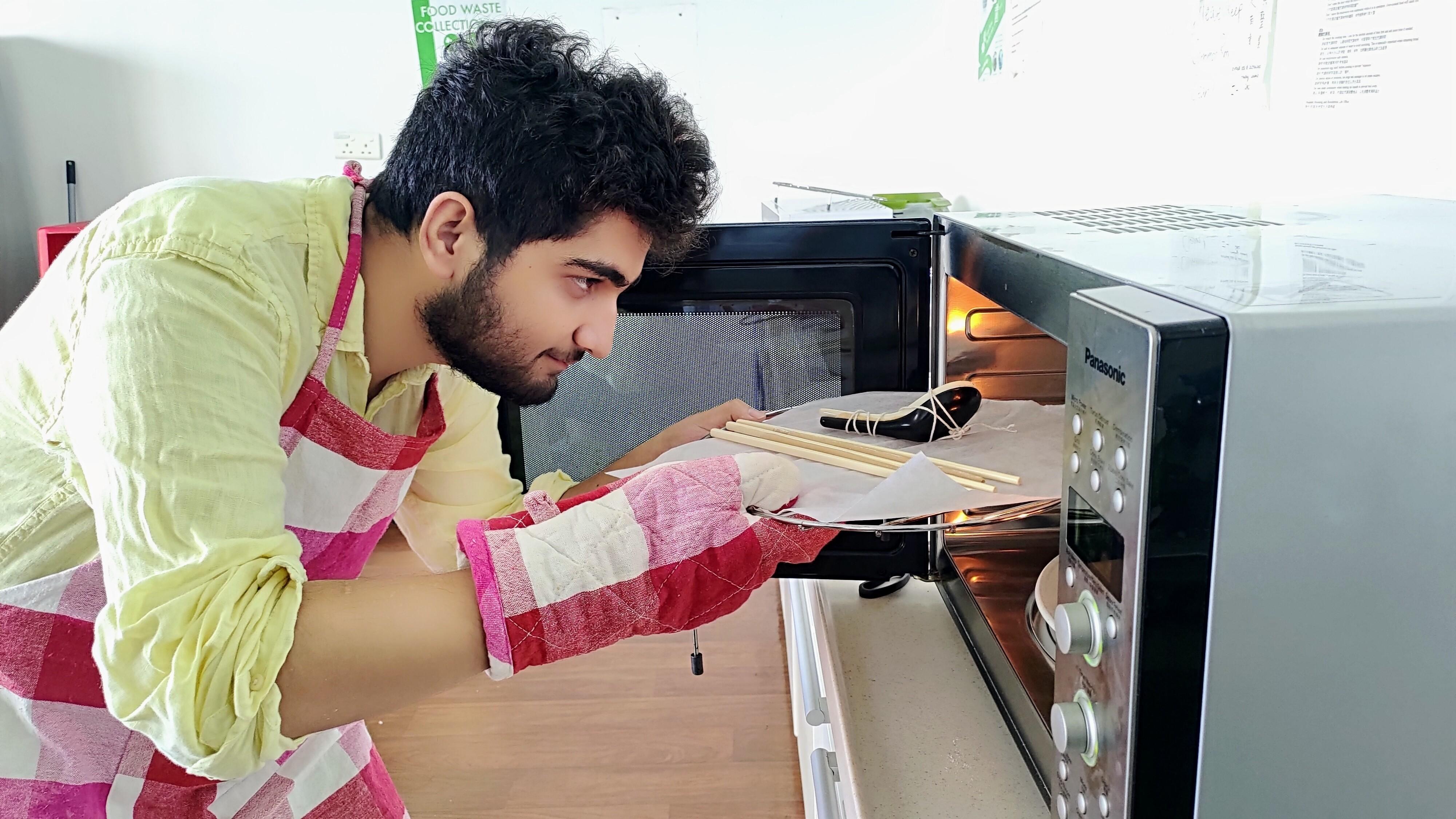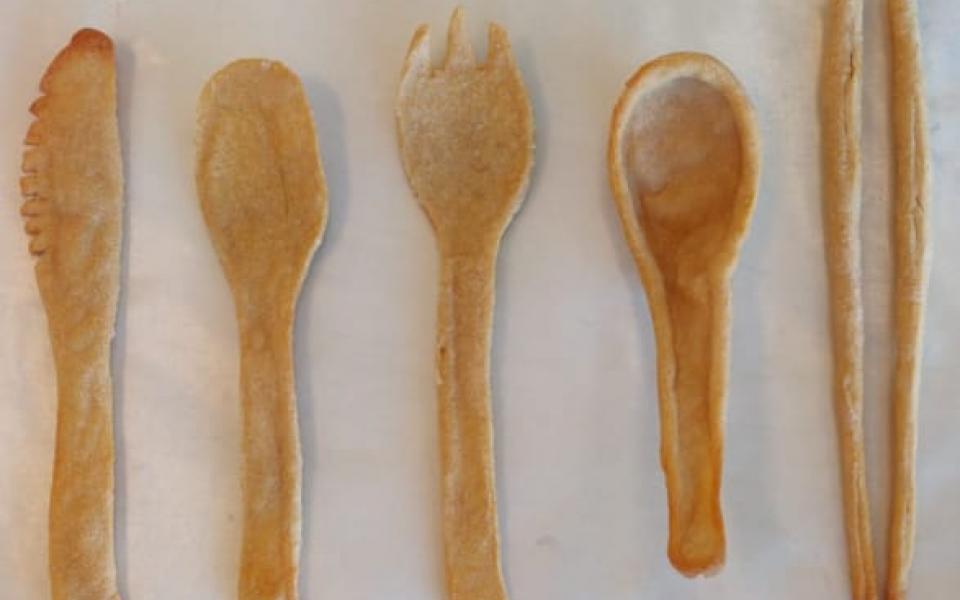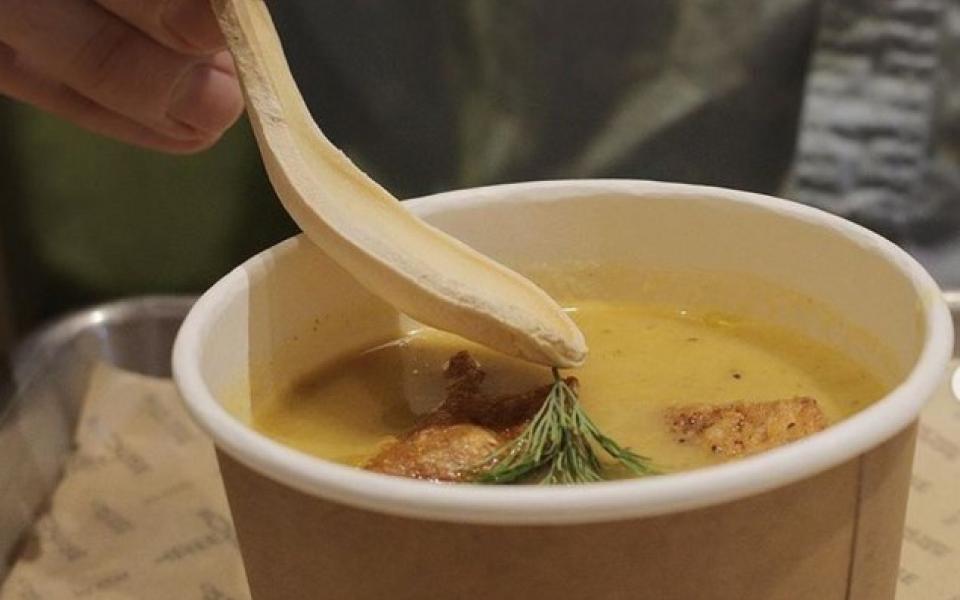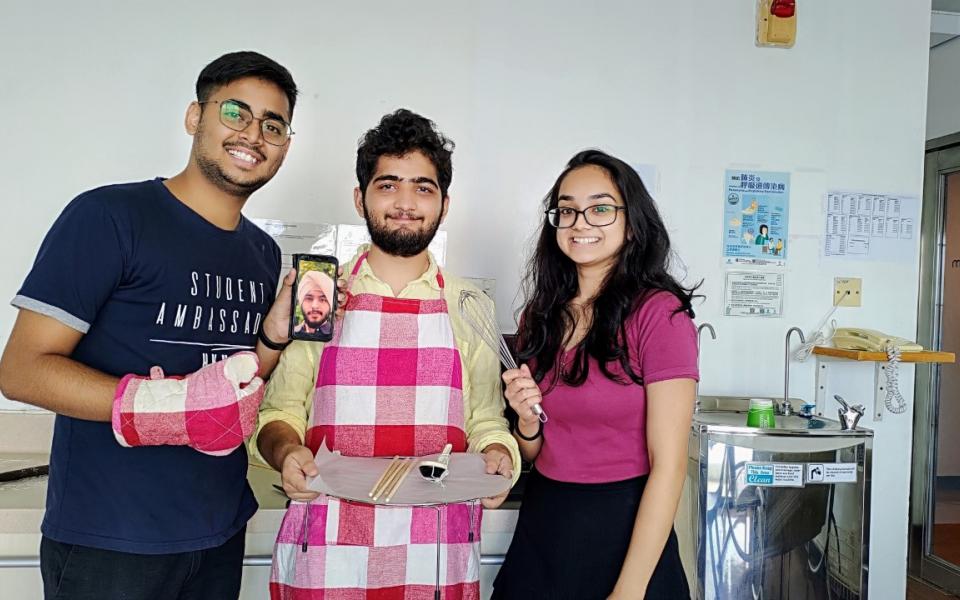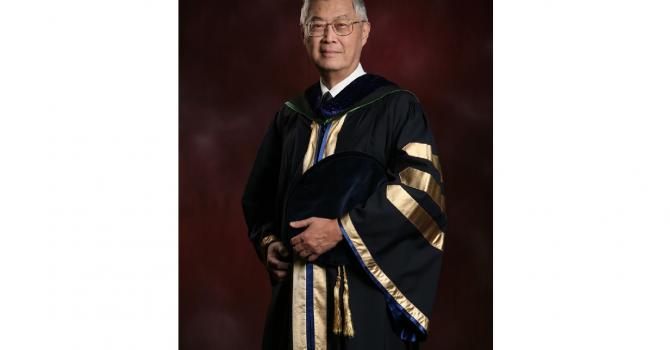Eat Your Spoons and Forks to Beat Pollution
While COVID-19 is still raging in Hong Kong, restaurants are only allowed to serve takeaways, leading to more plastic waste being dumped in the city’s landfills. To help reduce single-use plastics, have you ever imagined eating your spoons, forks, and chopsticks after finishing your meal? This is what Aditi DEODHAR and Swapnil MISHRA, co-founders of Planeteers, do to fight against plastic pollution.
“With safe-distancing measures in place and dining in being banned recently, it’s safe to assume a lot more people are taking their food home, and that much more plastic is used in the process,” says Aditi. “All that waste will contribute to the city’s landfills.”
Government statistics shows that about 166 tons of plastic tableware were disposed every day in 2018, and the figure is probably on an uptrend under the prolonged uncertainty posed by COVID-19.
Read another related article: The Sweet Solution to a Global Crisis
The two business administration students, Aditi soon to enter Year 3 and Swapnil Year 2, started Planeteers this year and have created a vegan and biodegradable edible alternative to single-use cutlery to fight the city’s mounting waste and pollution crisis.
Aditi hit upon the idea for Planeteers last year but had not taken steps to bring it to life until the duo decided to enter the annual HKUST-Sino One Million Dollar Entrepreneurship Competition this year. “I’m a big-picture thinker and I want to protect the environment, so I’m glad we formed our own ideas and were exposed to other contestants’ ideas. That was really inspiring,” she says.
Read another related article: Using Sensing Technology for Sustainable Tree Management
Their invention earned them the Focus Area Award under the category of Environment and Sustainability in the competition, which aims to offer HKUST and surrounding community members a platform to turn innovative business ideas into reality and encourage students to pursue entrepreneurship.
“The competition was an excellent thinking exercise for me. It set the boundary and led us to come up with a clear strategy succinctly. It was at times overwhelming because we had to do 10 different things at the same time, and we had to prioritize and be clear-eyed about our goals,” Swapnil comments.
The cutlery they created is made from whole-grain flours and therefore 100% vegan-friendly. The manufacturing process involves cutting the dough in the shapes of spoon, knife, or chopsticks, and baking it for an hour.
They have run tests with different people trying out their cutlery on different food, including ramen and rice, to make sure the cracker-like utensils would not break. “A big part of the challenge was to not only offer an alternative to plastic cutlery, but also something that complements and actually enhances the eating experience. We’re glad to see they withstood the bowl of ramen for at least 30 minutes,” Aditi says.
The pair had started off experimenting with their products in the student dorm kitchen before they received help from the Entrepreneurship Center, which connected them with the Campus Services Office, which then offered to let them use a large and well-equipped kitchen.
“We have benefited considerably from the University’s great support. Besides the help with finding us a place to experiment with, professors who we consulted were all eager to share advice on how to turn ideas into actions. A lot of what we’re able to do now is a result of the grooming they’ve given us,” Swapnil says.
They plan to reinvest the HK$25,000 prize money into product development, testing, and running a pilot program, in which they seek to partner up with a bakery in the next three months.
Further down the line, they target to develop better shaped or even flavored cutlery. Their initial research finds that the flavors that would appeal to people in the city would be different from those overseas, including their home country India. “In India, people would generally enjoy flavors like spices or cumin, but we think flavors like garlic, shrimp, or cinnamon would be more widely accepted here,” Aditi says.
They believe their edible cutlery will gradually appeal to more HongKongers, who are increasingly health-conscious and care about the environment.
“Restaurants and businesses need to be aware that every time they give out a piece of single-use plastic, they’re contributing to the city’s already-overflowing landfills,” Aditi says. “But this can only be done when their customers stop showing demand for it, so we need everyone to be on board.”
